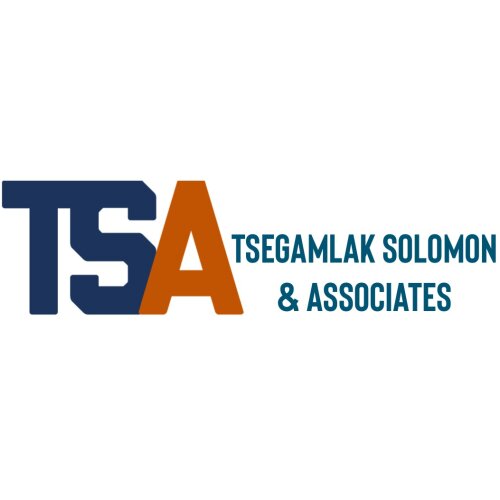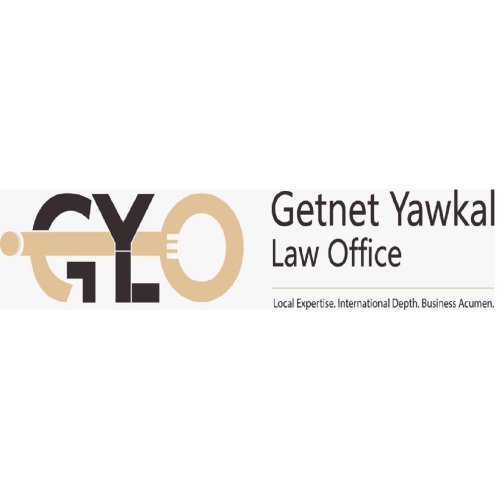Best Acquisition / Leveraged Finance Lawyers in Ethiopia
Share your needs with us, get contacted by law firms.
Free. Takes 2 min.
Or refine your search by selecting a city:
List of the best lawyers in Ethiopia
About Acquisition / Leveraged Finance Law in Ethiopia
Acquisition and leveraged finance is a specialized area of law that focuses on the funding and structuring of financial transactions when businesses acquire other companies, assets, or significant stakes. In Ethiopia, acquisition finance generally covers loans, bonds, or other credit facilities raised to buy companies or merge entities. Leveraged finance typically involves borrowing through a higher amount of debt, using the acquired company’s assets as collateral. These financial structures are increasingly important as the Ethiopian economy grows and attracts more private investments, both local and international. The regulatory environment in Ethiopia is evolving to support such transactions, but it remains complex due to local banking restrictions, foreign currency controls, and specific requirements for foreign investors.
Why You May Need a Lawyer
Acquisition and leveraged finance transactions involve multiple parties, extensive negotiation, and significant legal risk. You may need a legal advisor if you are:
- Planning to acquire a company or assets in Ethiopia
- Pursuing a management buyout or leveraged buy-in
- Negotiating acquisition loans or credit facilities with a bank
- A foreign investor navigating local regulations and restrictions
- Concerned about compliance with the National Bank of Ethiopia's requirements
- Dealing with collateral, security interests, or debt restructuring
- Drafting or reviewing acquisition agreements, shareholder or joint venture agreements
- Managing due diligence or regulatory filings
Given the complexities and stakes involved, having a skilled lawyer ensures your transaction is legally sound, risk is minimized, and your interests are protected under Ethiopian law.
Local Laws Overview
Ethiopian acquisition and leveraged finance deals are governed by a variety of statutes and regulatory bodies. Key aspects include:
- Banking Law: All financial institutions must comply with the National Bank of Ethiopia's directives, which regulate lending limits, security interests, and foreign currency usage in cross-border transactions.
- Commercial Code: The recently amended Commercial Code of Ethiopia governs company formation, mergers, acquisitions, and insolvency, including the formalities required for share transfers and asset sales.
- Investment Laws: The Investment Proclamation and its regulations outline sectors open to foreign investors, minimum capital requirements, and repatriation of profits.
- Collateral Law: The Movable Property Security Rights Proclamation enables use of movable assets as collateral, affecting how debt is secured in leveraged transactions.
- Tax Law: Tax implications can arise with stamp duty, capital gains, and withholding taxes on acquisition transactions, especially for foreign parties.
- Competition Law: The Ethiopian Trade Competition and Consumer Protection Authority oversees anti-competitive practices and merger control.
These frameworks shape how acquisition and leveraged finance can be structured in Ethiopia, and failing to comply can result in penalties, transaction delays, or unenforceable agreements.
Frequently Asked Questions
What is acquisition finance?
Acquisition finance refers to the funding provided, typically through loans or credit facilities, to enable one company to acquire another company or its assets.
What is leveraged finance?
Leveraged finance is the use of significant borrowed funds to acquire a company, where the acquired company's assets often serve as collateral for the loan.
Are foreign investors allowed to participate in acquisition financing in Ethiopia?
Yes, but participation is subject to sector restrictions, minimum capital requirements, and approval by relevant authorities, such as the Ethiopian Investment Commission.
Can movable assets be used as collateral in Ethiopia?
Yes, the Movable Property Security Rights Proclamation allows movable assets (like inventory, receivables, equipment) to be used as collateral, facilitating leveraged finance deals.
What restrictions do Ethiopian banks face in lending for acquisitions?
Banks must comply with prudential limits, collateral requirements, and directives from the National Bank of Ethiopia. There are also limitations on foreign currency lending unless specifically approved.
How are mergers and share acquisitions regulated?
They are regulated under the Commercial Code, which stipulates how shares can be transferred and the procedures for mergers and acquisitions, along with competition and regulatory oversight.
Are there any tax implications for acquisition deals?
Yes, acquisition deals may attract stamp duties, capital gains tax, and withholding tax, especially if they involve foreign parties or transfer of significant assets.
How long does it usually take to complete an acquisition or leveraged finance deal in Ethiopia?
The timeline varies depending on the complexity of the deal, regulatory approvals, due diligence, and negotiation processes. Deals often take several months to complete.
What due diligence is required for acquisition financing?
Due diligence typically covers the legal, financial, and operational aspects of the target business, including asset verification, liabilities assessment, and compliance with local laws.
Can acquisition transactions be challenged or blocked by regulators?
Yes, regulators such as the Trade Competition and Consumer Protection Authority may block transactions that threaten market competition or violate merger control rules.
Additional Resources
Individuals and businesses can consult the following resources for further guidance:
- National Bank of Ethiopia - for regulations on banking and finance
- Ethiopian Investment Commission - for foreign investment guidance and sector approvals
- Ministry of Trade and Regional Integration - for commercial registration and licensing
- Trade Competition and Consumer Protection Authority - for competition and merger control issues
- Ethiopian Bar Association - for finding qualified legal practitioners experienced in finance law
- Relevant Chambers of Commerce and Industry - for industry-specific advice and networking
Next Steps
If you are considering an acquisition or leveraged finance transaction in Ethiopia, follow these steps to protect your interests:
- Consult with a lawyer specialized in acquisition and finance law at the earliest stage.
- Prepare a detailed plan of the intended acquisition or financing structure.
- Conduct thorough due diligence on target entities and assets.
- Ensure compliance with relevant Ethiopian laws, sector codes, and regulatory requirements.
- Review and negotiate all finance agreements, security documents, and acquisition contracts with legal support.
- Coordinate with financial institutions and relevant government agencies for necessary approvals and filings.
- Anticipate and plan for tax, regulatory, and operational implications post-transaction.
Taking proactive legal advice will help you navigate the complexities of Ethiopian acquisition and leveraged finance, mitigate risks, and achieve your business objectives.
Lawzana helps you find the best lawyers and law firms in Ethiopia through a curated and pre-screened list of qualified legal professionals. Our platform offers rankings and detailed profiles of attorneys and law firms, allowing you to compare based on practice areas, including Acquisition / Leveraged Finance, experience, and client feedback.
Each profile includes a description of the firm's areas of practice, client reviews, team members and partners, year of establishment, spoken languages, office locations, contact information, social media presence, and any published articles or resources. Most firms on our platform speak English and are experienced in both local and international legal matters.
Get a quote from top-rated law firms in Ethiopia — quickly, securely, and without unnecessary hassle.
Disclaimer:
The information provided on this page is for general informational purposes only and does not constitute legal advice. While we strive to ensure the accuracy and relevance of the content, legal information may change over time, and interpretations of the law can vary. You should always consult with a qualified legal professional for advice specific to your situation.
We disclaim all liability for actions taken or not taken based on the content of this page. If you believe any information is incorrect or outdated, please contact us, and we will review and update it where appropriate.
Browse acquisition / leveraged finance law firms by city in Ethiopia
Refine your search by selecting a city.

















